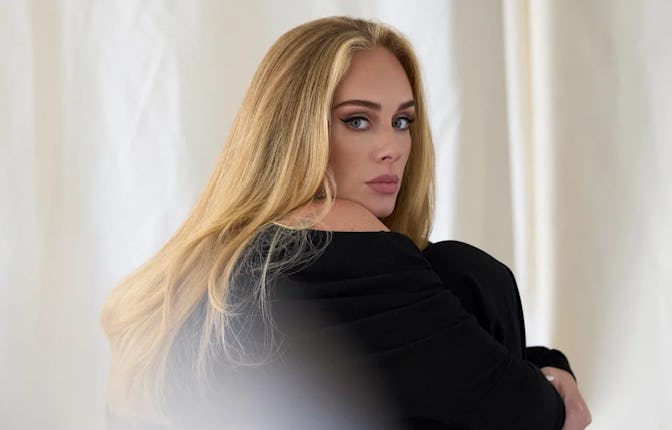Adele is unafraid to embrace the wisdom of age on ‘30’
While most pop stars try to appear ageless, Adele is celebrating the wisdom her years have afforded her.

From the first lines of Adele’s long-anticipated fourth studio album 30, it is clear that she is not fucking around. The opening song “Strangers By Nature” begins, “I’ll be taking flowers to the cemetery of my heart / for all of my lovers in the present and in the dark.” It’s a gothically poetic line that even Adele herself admitted struck her as she wrote it in a recent Apple music interview. As the song unfurls with an orchestral arrangement, and a breathier, more falsetto’d Adele than the power piano ballads she’s known for (but are definitely still in there), she eases us in to the living room of her psyche, inviting us to come have a drink and get to know her again in this new decade of her life. Which is part of what makes 30 so magical — it’s an Adele completely unafraid to embrace the realities of getting older, and celebrate the wisdom that life experience bestows on us. It’s a record for the millennials who’ve been on this journey with her from the beginning, who bare the emotional scars of time just as she does.
In the same interview, she spoke with Zane Lowe about how she’s staying true to herself as an artist — something she’s arguably always done, and almost as an anomaly — but that her team required a bit more insistence this time around. She told Lowe that management had mentioned making some songs on the album geared towards TikTok so that “14-year-olds would know who [she] was.” “They’ve all got mums!” she charmingly quips. “If everyone is making music for the TikTok, who is making music for my generation? Who is making music for my peers? I will do that job, gladly. I’d rather cater to people who are on my level with the time I’ve spent on earth, and all of the things we’ve been through. I don’t want 12-year-olds listening to this record. It’s a bit too deep. But the 30 and 40-year-olds who are committing to themselves and doing therapy — that’s my vibe cause that’s what I was doing. I’m more concerned with how this record can help them.”
Stick it to the TikTok, babes; we love to see it. Adele has never had to court trends, curate aesthetics or morph to what’s popular to achieve the smashing success she’s had since her debut. But for her to take this stance is refreshing in today’s overwhelmingly digitized age, when it’s getting easier for Millennials and Gen X to feel lost in the online chaos of horned up youth and silly oversharing. The insistence on all entertainment marketing to Gen Z as if they are the ultimate barometer of success is exhausting for those of us who know what life was like before the feeding frenzy of the internet. And in true, exhilarating Adele fashion, she’s delivered us an album that refuses to cape to any of those modern pressures. She reminds us on this record that like fine wine, we are only getting better — even if that process can be brutally hard won.
30 is just as soulful as her prior triumphs on 25, 21 and 19, but proves poppier and more sonically dynamic. It feels somewhere between a wine night with an old friend staying up until dawn, and a bloody good therapy session. She delicately slips in soul-crushing voice memos, while taking us on the bumpy journey of exiting your twenties. She assuages the weary, “Cry your heart out; it’ll clean your face / When you’re in doubt, go at your own pace,” on “Cry Your Heart Out.” She laments the ease of artificial escape and self-destruction on “I Drink Wine:” “When I was a child, every single thing could blow my mind / Soaking it all up for fun, but now I only soak up wine.” She speaks to how soul crushing leaving a failed relationship can be on “To Be Loved:” “It’s a sacrifice, but I can’t live a lie / Let it be known, let it be known that I tried.” Adele has always been a universal treasure, but she did something extra special on this record. She symbolically went beyond just critical success — she gave her generation the gift of seeing us, in our awkward aging glory, and letting her journey be not just revelatory on 30, but relatable for a demographic who doesn’t get given cultural gifts like this very often anymore.